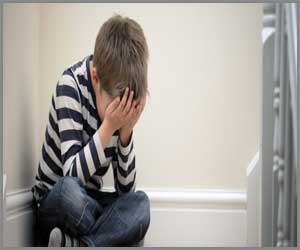- Home
- Editorial
- News
- Practice Guidelines
- Anesthesiology Guidelines
- Cancer Guidelines
- Cardiac Sciences Guidelines
- Critical Care Guidelines
- Dentistry Guidelines
- Dermatology Guidelines
- Diabetes and Endo Guidelines
- Diagnostics Guidelines
- ENT Guidelines
- Featured Practice Guidelines
- Gastroenterology Guidelines
- Geriatrics Guidelines
- Medicine Guidelines
- Nephrology Guidelines
- Neurosciences Guidelines
- Obs and Gynae Guidelines
- Ophthalmology Guidelines
- Orthopaedics Guidelines
- Paediatrics Guidelines
- Psychiatry Guidelines
- Pulmonology Guidelines
- Radiology Guidelines
- Surgery Guidelines
- Urology Guidelines
NICE Guidelines on management of mild Depression in children

NICE has released its 2019 Guidelines on the management of mild Depression in children.This guideline covers identifying and managing depression in children and young people aged 5 to 18 years.
Following are the major recommendations:
1. Managing mild depression
Watchful waiting
- For children and young people with diagnosed mild depression who do not want an intervention or who, in the opinion of the healthcare professional, may recover with no intervention, a further assessment should be arranged, normally within 2 weeks ('watchful waiting'). [2005]
- Healthcare professionals should make contact with children and young people with depression who do not attend follow‑up appointments. [2005]
Treatments for mild depression
For children and young people with learning disabilities, see the recommendations on psychological interventions in the NICE guideline on mental health problems in people with learning disabilities.
- Antidepressant medication should not be used for the initial treatment of children and young people with mild depression. [2005]
- Discuss the choice of psychological therapies with children and young people with mild depression and their family members or carers (as appropriate). Explain:
- what the different therapies involve
- the evidence for each age group (including the limited evidence for 5- to 11‑year‑olds)
- how the therapies could meet individual needs, preferences and values. [2019]
- Base the choice of psychological therapy on:
a full assessment of needs, including:
- the circumstances of the child or young person and their family members or carers
- their clinical and personal/social history and presentation
- their maturity and developmental level
- the context in which treatment is to be provided
- comorbidities, neurodevelopmental disorders, communication needs (language, sensory impairment) and learning disabilities
- patient and carer preferences and values (as appropriate). [2019]
- For 5- to 11‑year‑olds with mild depression continuing after 2 weeks of watchful waiting, and without significant comorbid problems or active suicidal ideas or plans, consider the following options adapted to developmental level as needed:
- digital cognitive–behavioural therapy (CBT)
- group CBT
- group non-directive supportive therapy (NDST)
- group interpersonal psychotherapy (IPT).If these options would not meet the child's clinical needs or are unsuitable for their circumstances, consider the following adapted to developmental level as needed:
- attachment-based family therapy
- individual CBT. [2019]
- For 12- to 18‑year‑olds with mild depression continuing after 2 weeks of watchful waiting, and without significant comorbid problems or active suicidal ideas or plans, offer a choice of the following psychological therapies for a limited period (approximately 2 to 3 months):
- digital CBT
- group CBT
- group NDST
- group IPT. [2019]
- If the options in recommendation 1.5.7 would not meet the clinical needs of a 12- to 18‑year‑old with mild depression or are unsuitable for their circumstances, consider:
- attachment-based family therapy or
- individual CBT. [2019]
- Provide psychological therapies in settings such as schools and colleges, primary care, social services and the voluntary sector. [2019]
- If mild depression in a child or young person has not responded to psychological therapy after 2 to 3 months, refer the child or young person for review by a CAMHS team. [2019]
- Follow the recommendations on treating moderate to severe depression for children and young people who have continuing depression after 2 to 3 months of psychological therapy. [2019]
For more details click on the link: www.nice.org.uk
circumstancescognitive behavioural therapydepressionhealthcare professionalinterpersonal psychotherapymild depressionNeurodevelopmental DisordersNICENICE 2019NICE guidelinenon-directive supportive therapyPrimary Carepsychological therapysocial services
Next Story
NO DATA FOUND

Disclaimer: This site is primarily intended for healthcare professionals. Any content/information on this website does not replace the advice of medical and/or health professionals and should not be construed as medical/diagnostic advice/endorsement or prescription. Use of this site is subject to our terms of use, privacy policy, advertisement policy. © 2020 Minerva Medical Treatment Pvt Ltd